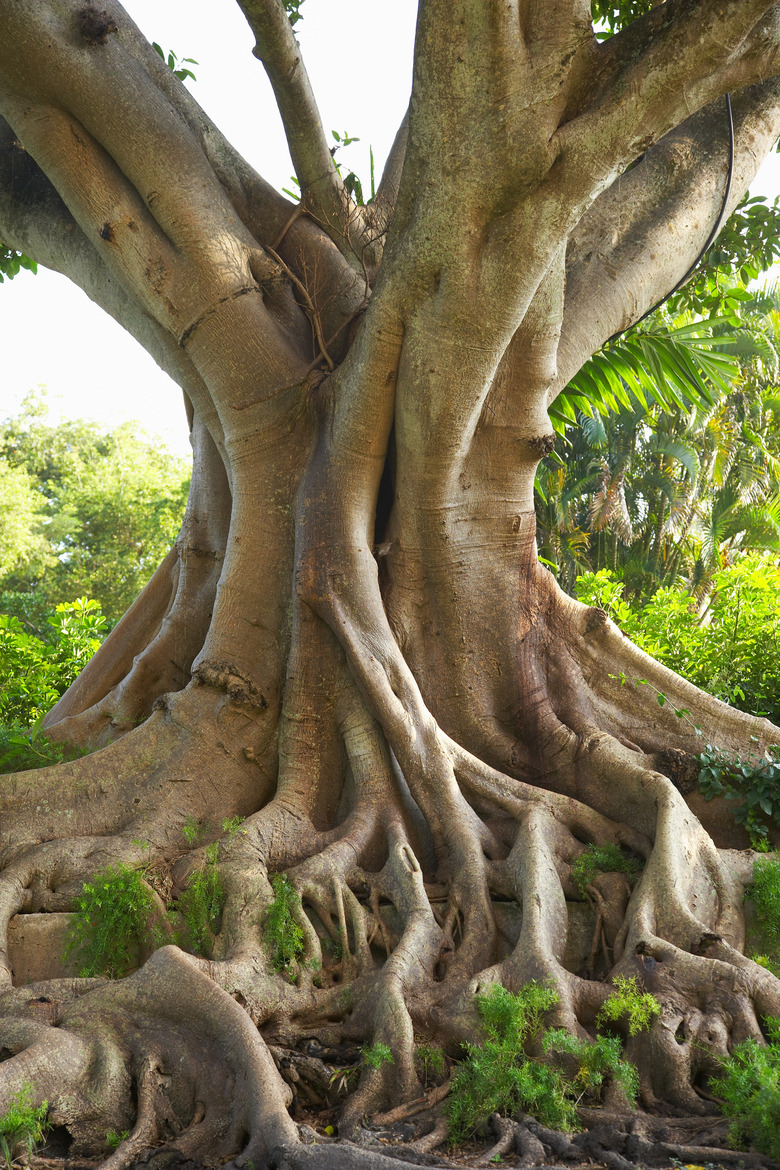How To Care For A Bodhi Or Bo Tree
The bodhi or bo tree (Ficus religiosa) is also known as the peepal or peepul tree. It is the tree species under which Buddha attained enlightenment. Bodhi trees are long-lived, and one Indian specimen is said to be over 3,000 years old. They can reach 100 feet in height with a crown up to 100 feet across. The leaves are glossy and dark-green with a long, pointed tip. Bodhi trees are tropical species that do not tolerate frost. There is some concern that bodhi trees may become an invasive species in Florida.
Step 1
Grow bodhi trees outdoors in the garden in areas with little or no frost. The National Taiwan University reports that bodhi trees will not survive minimum winter temperatures below 50 degrees Fahrenheit while the Missouri Botanical Garden website states that they are hardy down to 30 degrees F.
Step 2
Plant your bodhi tree in the sunniest available spot in the garden with rich, free-draining soil. Avoid areas prone to over-saturation. Water young trees as soon as the surface of the soil around their trunks is dry. Do not water bodhi trees if their soil is already wet due to rain. Fertilize every three months, during the warmer months of the year, with granular, slow-release fertilizer.
Step 3
Grow bodhi trees as container plants or indoor potted plants in cold areas. Plant them in heavy ceramic pots in potting compost mixed with 30 percent sharp sand for drainage. Place your potted tree in a sunny or lightly shaded location in the garden. Put indoor plants on a south- or west-facing windowsill. Water your potted bodhi tree as soon as the surface of the soil is dry to the touch. Fertilize during the warmer months of the year with a low nitrogen fertilizer. Move outdoor plants indoors before winter temperatures drop below 50 degrees F.
Tip
Propagate bodhi trees from stem cuttings or by air-layering branches. In air-conditioned homes, keep potted plants on a dish of damp pebbles to raise the humidity level.
Warning
Plant bodhi trees well away from buildings as their roots can damage foundations. Choose a site sheltered from the wind as bodhi trees have shallow roots and can be blown over by strong winds.
